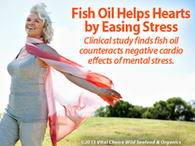Most of us know when we’re stressed. Physical cues like stomach butterflies, a flushed face, or muscle tension are hard to miss. Problem is, said symptoms can be very difficult to control. Once going—these things tend to snowball.
Research and publish the best content.
Get Started for FREE
Sign up with Facebook Sign up with X
I don't have a Facebook or a X account
Already have an account: Login
Live longer in good health and you will have a chance to extend your healthy life even further
Curated by
Ray and Terry's
 Your new post is loading... Your new post is loading...
 Your new post is loading... Your new post is loading...
|
|
















